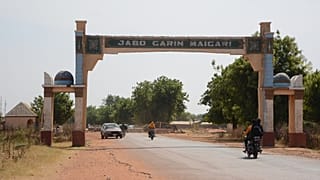Nigeria
Nigeria has declared an end to the deadly meningitis outbreak that killed 1,166 people since it struck the northern parts of the country in November last year.
Health Minister Isaac Adewole confirmed on Wednesday the end to the outbreak three days after the Nigeria Centre for Disease Control had announced on social media.
With data analysis in last few wks,we're pleased to announce the 16/17 #Meningitis outbreak in #Nigeria is over https://t.co/TdewwRRnDK pic.twitter.com/SkTp616nZ4
— NCDC (@NCDCgov) June 25, 2017
At the end of the outbreak, a total of 14,518 suspected cases were reported from 25 states.
The health minister further stated that the country has not recorded any cases of polio in 2017 but seven cases of Lassa fever. The recent case of cholera outbreak in Kwara state has also ended, he added.
Meningitis is caused by different types of bacteria, six of which can cause epidemics.
It is transmitted between people through coughs and sneezes and facilitated by cramped living conditions and close contact.
The illness causes acute inflammation of the outer layers of the brain and spinal cord, with the most common symptoms being fever, headache and neck stiffness.
Nigeria lies in the so-called “meningitis belt” of sub-Saharan Africa, stretching from Senegal in the west to Ethiopia in the east, where outbreaks of the disease are a regular occurrence.












02:00
Nigeria: Rescued teacher reunites with family as last captives are freed
00:08
Last group of kidnapped Nigerian schoolchildren reunited with their families
00:58
Nigeria and Tanzania get ready to face off in Fez in round one of AFCON Group C
01:56
Nigeria signs healthcare deal with US under new global health framework
01:35
Nigeria boosts security as 130 kidnap victims freed
Go to video
130 kidnapped Nigerian students freed after one month in captivity